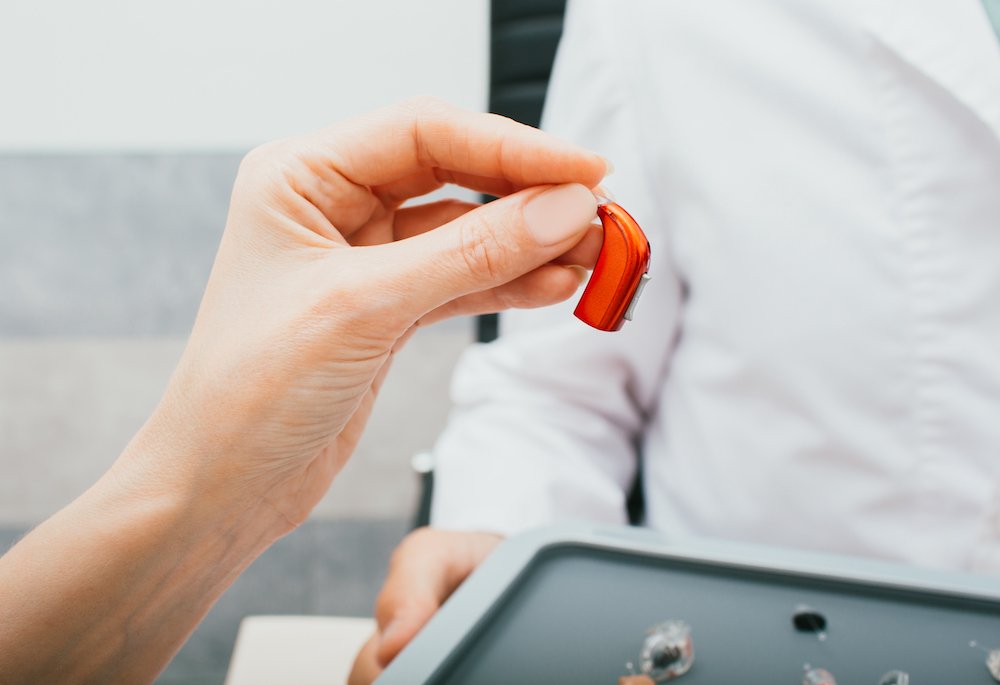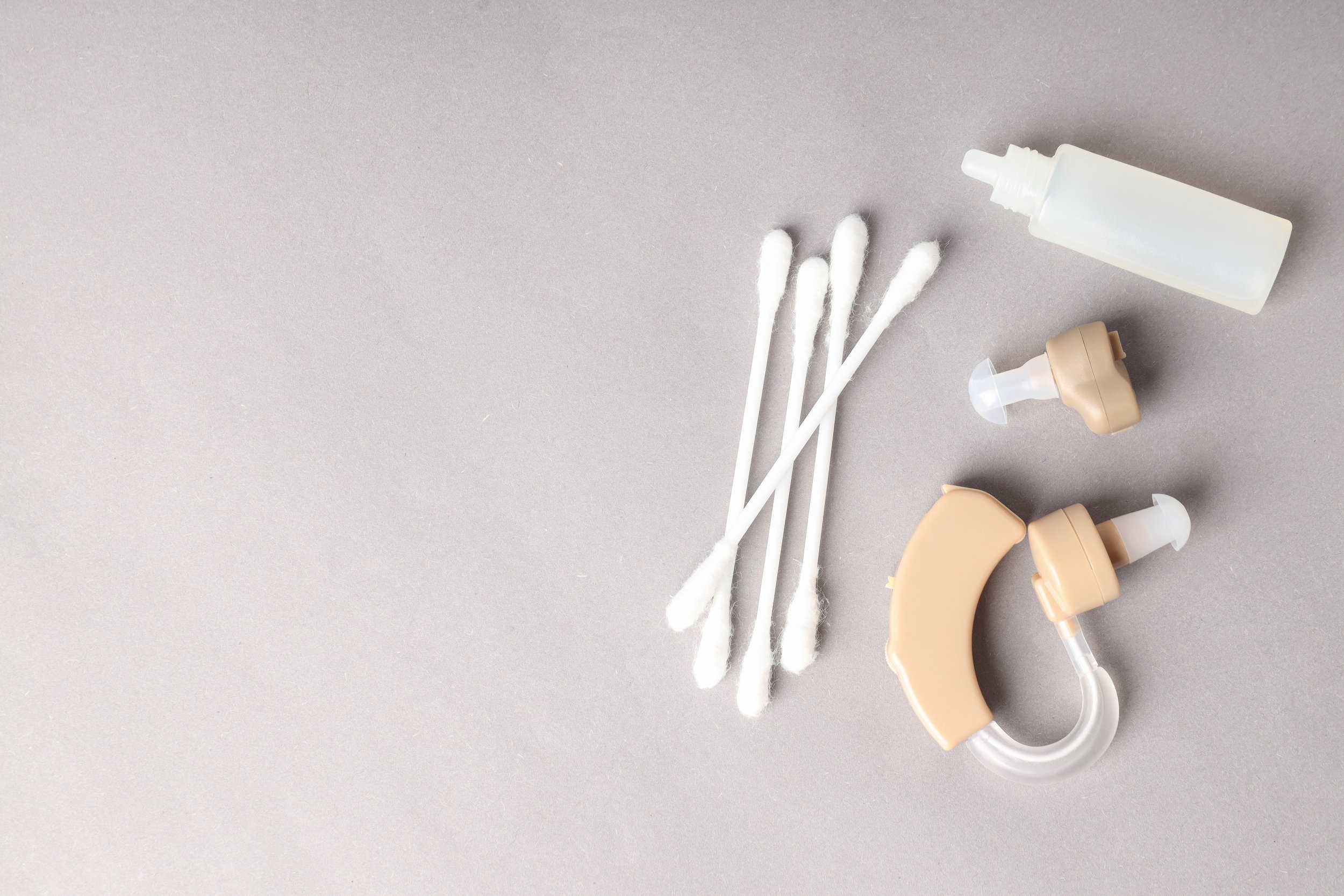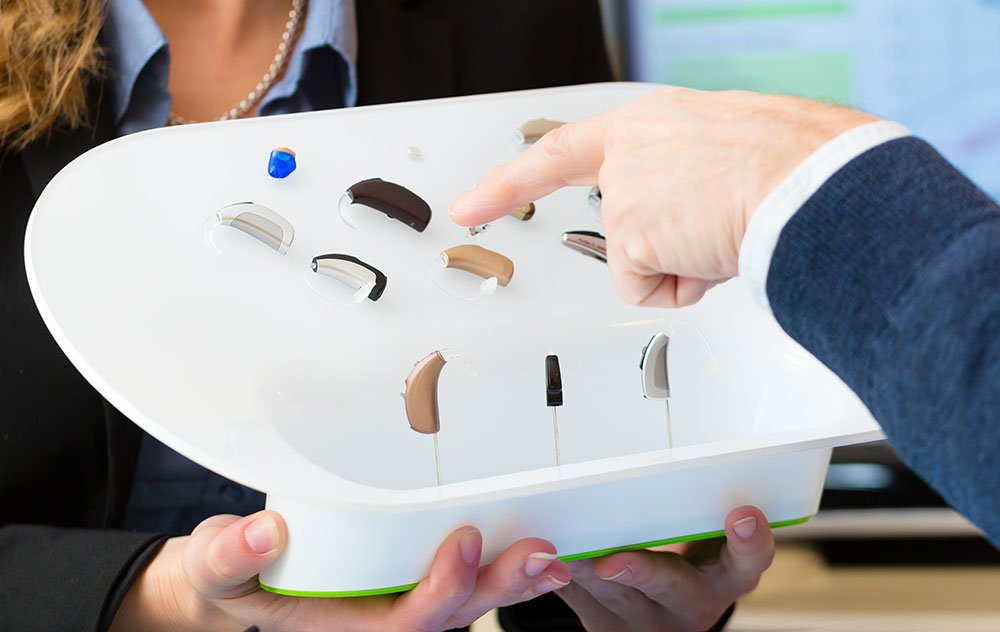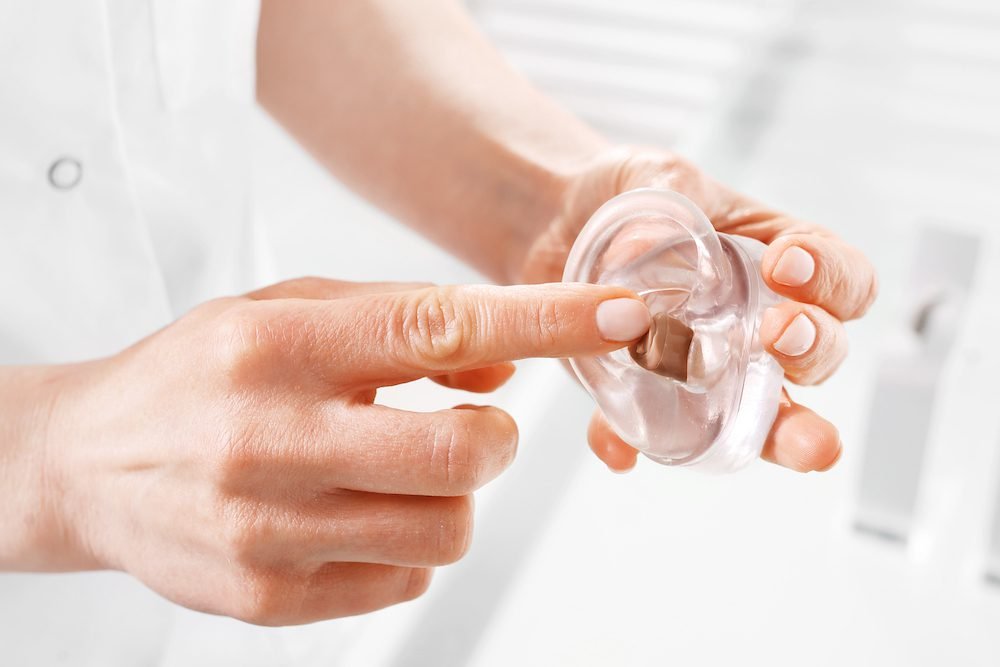What to Expect from Hearing Aids

Around 48 million Americans have some form of hearing loss; even if yours is a mild case, it’s likely that wearing hearing aids will present major benefits. However, it’s important to find the right audiologist to help you select the devices that will meet your specific needs and wants.
When trying to determine which hearing aids are right for you, there are a number of factors to consider, from which style is best for your needs to which features would be most beneficial to your hearing loss.
Confirming the right type of hearing aids for you
Noticing the signs that you have hearing loss is pretty easy. Frankly, if you believe that you could benefit from wearing hearing aids, there’s a very good chance that you’re right. However, knowing that you need help and getting the right type of help are two entirely different things.
When having a hearing exam, the audiologist will determine the type and severity of your hearing loss. This information, combined with details on your lifestyle, can help them make suggestions regarding the best type of hearing device for your needs.
The most common hearing aid types include:
Behind the ear: These devices are worn with a unit that sits behind the ear and has a thin tube or wire to connect to a receiver resting in your ear. These devices are slightly larger than the other options, but offer power and easy handling.
In the ear: This type of hearing aid is available in full and half shell options and sits in the bowl of the ear. They offer a smaller size than the BTE option and can still equip a number of features.
In the canal: Devices worn in the ear canal can provide a number of benefits, such as a more natural listening experience to discreetness. However, they may not be ideal if you have dexterity issues due to their small size.
There is also a possibility that implants or other forms of treatment may be deemed better. Either way, an accurate diagnosis and understanding the various options are crucial precursors to getting the best results.
How quickly do hearing aids work?
Once fitted, turned on and calibrated, hearing aids provide immediate results. However, it’s important to remember that they can only provide the improved hearing you desire when the settings and positioning are tailored to your needs. This is just one of the many reasons to choose an audiologist over an off-the-shelf alternative.
The audiologist will also show you how to fit the hearing aids or daily comfort while also explaining basic maintenance and storage advice. This should allow you to start enjoying the benefits right away.
Won’t it all feel a little strange?
While the ability to hear things more clearly is hugely rewarding, acclimatizing to the new lifestyle can be a little challenging. The audiologist may suggest only wearing the devices for a small portion of the day for the first week or so before gradually increasing the usage. Besides, you may find that wearing the device in all situations isn’t required anyway. In short, it may feel a little odd at the start, but you’ll soon get used to it.
On a brighter note, though, wearing hearing aids won’t hurt. The only time that you may experience pain or discomfort is when parts have become misshapen or damaged.
Will my hearing aids get damaged?
As long as you take note of everything the audiologist has to say regarding storage and general care, the devices should remain largely unharmed. Nonetheless, there will be several ongoing maintenance tasks that require your attention. These include changing the battery every few days and replacing the tubing on certain hearing aid models.
Parts may also become pushed out of position while the changing shape of your ear may mean that new molds are required. With good care, the hearing aids should provide years of service. If you do notice issues sooner, though, there’s nothing wrong with seeing the audiologist to be sure.
Will my hearing be perfect?
Probably not. Hearing aids are there to restore a sense of normal hearing but they won’t necessarily give you a perfect hearing profile. It helps if your hearing loss is only mild to start with while choosing the right hearing aid for your needs is pivotal too.
The improvements are likely to make you feel as though your hearing is back to perfection, not least because it will reduce the frequency of asking people to repeat themselves. It’s certainly a better solution than not wearing hearing aids.
Book your hearing test or hearing aid fitting today.
If you believe that hearing aids could offer some benefit to your life, the first step to success is to find an audiologist that can guide you through the process of hearing examinations, device selection and hearing aid fittings.
Adirondack Audiology boasts the best audiologists at no less than four centers. In addition to providing the best technical support, we offer expert advice and emotional support to help you through the transitional period.
Call our office today at (800) 273-9536 today to find the right device to accompany your hearing loss – and lifestyle.
Trending Blogs
A lot of people have no idea how to clean their ears. If you think that your ear is filled with wax or clogged up, you might think about reaching for something to get rid of the issue. This could be a small piece of tissue, a pen lid or anything pointy to shovel it out.
A lot of people have no idea how to clean their ears. If you think that your ear is filled with wax or clogged up, you might think about reaching for something to get rid of the issue. This could be a small piece of tissue, a pen lid or anything pointy to shovel it out.
A lot of people have no idea how to clean their ears. If you think that your ear is filled with wax or clogged up, you might think about reaching for something to get rid of the issue. This could be a small piece of tissue, a pen lid or anything pointy to shovel it out.
A lot of people have no idea how to clean their ears. If you think that your ear is filled with wax or clogged up, you might think about reaching for something to get rid of the issue. This could be a small piece of tissue, a pen lid or anything pointy to shovel it out.
A lot of people have no idea how to clean their ears. If you think that your ear is filled with wax or clogged up, you might think about reaching for something to get rid of the issue. This could be a small piece of tissue, a pen lid or anything pointy to shovel it out.
A lot of people have no idea how to clean their ears. If you think that your ear is filled with wax or clogged up, you might think about reaching for something to get rid of the issue. This could be a small piece of tissue, a pen lid or anything pointy to shovel it out.
In most situations, hearing loss is caused by damage to the nerves in your inner ear. If these nerves start to weaken, then it’ll negatively affect your ability to hear.
Like most technology, hearing aids have some problems and malfunctions every now and then. You might find that you need to send your hearing aids off for repairs. It could be something simple, or it might be a little more complicated.
When is a cell phone hearing aid compatible? Fortunately, senior cell phones that do not interfere with hearing aids are clearly marked as such. In the United States, hearing aid compatibility testing is mandatory.
When is a cell phone hearing aid compatible? Fortunately, senior cell phones that do not interfere with hearing aids are clearly marked as such. In the United States, hearing aid compatibility testing is mandatory.
When is a cell phone hearing aid compatible? Fortunately, senior cell phones that do not interfere with hearing aids are clearly marked as such. In the United States, hearing aid compatibility testing is mandatory.
When is a cell phone hearing aid compatible? Fortunately, senior cell phones that do not interfere with hearing aids are clearly marked as such. In the United States, hearing aid compatibility testing is mandatory.
When is a cell phone hearing aid compatible? Fortunately, senior cell phones that do not interfere with hearing aids are clearly marked as such. In the United States, hearing aid compatibility testing is mandatory.
If you’re going to see an audiologist for the first time, you may be wondering what to expect. You may be slightly nervous, or you might be excited about the prospect of finding out more about hearing aids. If you’ve got your first appointment coming up, here are four things you can expect.
Anyone that has encountered signs of tinnitus will know that the condition can be very irritating. Severe cases can even feel debilitating, forcing you to stay in bed due to problems with your balance and hearing.
A hearing test provides a measurement of the sensitivity of a person’s hearing across the full range of speech. The test will measure the quietest sound that can be heard several points across the speech range. This hearing test is termed an audiogram and will be performed by an audiologist.
If you believe you may be experiencing hearing loss, then attending a hearing aid evaluation can be the first step towards accessing treatment.
Hearing loss comes in different shapes and forms. For people who are experiencing hearing loss for the first time, it’s hard to tell whether they are dealing with severe or mild hearing loss without running a hearing test.
Millions of people in the United States wear hearing aids, and for many, it is a life-changing experience. However, for some, wearing a hearing aid can be difficult because the aid does not fit properly. If you are having trouble with your hearing aid, you may need to get a new one.
Your hearing aids will require cleaning like anything else you use regularly. Quality hearing aid cleaning will provide years of reliable and better hearing.
It’s a question that often comes up for people who are new to hearing aids – how long do they last? The answer, of course, depends on a number of factors, such as the make and model of hearing aid, how well they’re taken care of and how often they’re used.
Most people take their hearing for granted until they experience a hearing loss. Your hearing health depends on many things, such as the health of your ears, your ability to understand speech and how well you adapt to changes in your hearing.
Make hearing aid repairs simple with our essential guide. Learn how to avoid frequent issues and extend the life of your hearing aids with easy maintenance practices.
Get a detailed overview of the hearing aid fitting process, including what happens during your appointment and how to choose the right device for your needs.
Discover the 4 key steps of a successful hearing aid evaluation and what to expect during your hearing aid test to ensure the best hearing solution for you.
Hearing loss is a significant cause of social isolation, which can make you vulnerable to developing depression and even dementia. If you are experiencing hearing loss to any degree, you need to consider corrective devices such as hearing aids to improve your lifestyle and maintain your communication. Beware, however, that investing in hearing correction is a commitment not to take lightly.
When it comes to hearing protection, earplugs are one of the most popular options. Offering the ability to comprehensively block sound and preserve hearing health, along with easy portability, it is no surprise that earplugs enjoy such prominence. But to enjoy these benefits, it is important to find the right kind of earplugs for you.
Discover safe and effective ways to remove ear wax with manual techniques and irrigation methods. Learn how to care for your ears and prevent buildup.
People tend to clean their ears by themselves with items they can find at home. This may include little picks, it could include cotton swabs or it might even just be their finger.
So, you’re thinking about hearing aids in comparison to cochlear implants and want to get more information on both? Although your audiologist is the best person to consult with regards to this, we’re going to delve into this topic in today’s blog post.
















